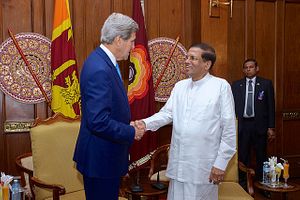The International Truth and Justice Project-Sri Lanka (ITJP) officially releases a new report on January 7. ITJP has documented cases of abduction, torture and sexual violence against ethnic Tamils. Short enough to be read in one sitting, the report encompasses 20 cases which occurred in 2015.
With its latest report, ITJP has reaffirmed how deep-rooted some of Sri Lanka’s problems are. The abduction and torture of Tamils is a systematic issue and one where state security personnel commit crimes with impunity. On many occasions, the families of victims are compelled to pay ransoms to ensure the release of a loved one. Families may also pay human smugglers so that victims are able to leave the country. So, in addition to the obvious physical, emotional, and psychological damage being done, these acts of violence consistently result in increased debt and more poverty. State security personnel also harass the families of torture victims. This oppressive system is ingrained into the culture of Sri Lanka’s security apparatus.
Broadly speaking, President Maithripala Sirisena’s tenure thus far has been less authoritarian than Mahinda Rajapaksa’s final years in power. Nevertheless, let’s not take too much comfort in people proclaiming that things are more democratic 12 months into Sirisena’s reign. As Sri Lanka watchers assess the new government’s progress one year after Rajapaksa’s unexpected ouster, it’s important to be candid about ongoing torture and sexual violence. The disturbing incidents documented in this report call into question the depth and breadth of purported democratic gains since Sirisena’s ascension in January 2015.
Here’s an illuminating paragraph from the report:
The cases reveal not only that torture and repression continue in Sri Lanka but that they remain widespread and systematic. They are the work of a well-organised machine which continues to thrive within the Sri Lankan police and military fuelled by extortion. It is responsible for terrorising and oppressing Tamils. This is therefore not a question of a few rotten apples in the system, as the new government so often suggests, but rather the result of structures that have long been corrupted.
This appalling abasement of human dignity greatly undermines any transitional justice plans and reiterates the need for significant international involvement in the country’s transitional justice process. Such coordinated repression also violates the most fundamental tenets of a fully functioning democracy. If the Sirisena administration is truly committed to building a more inclusive state and healing the wounds of war, then the work must begin now.

































